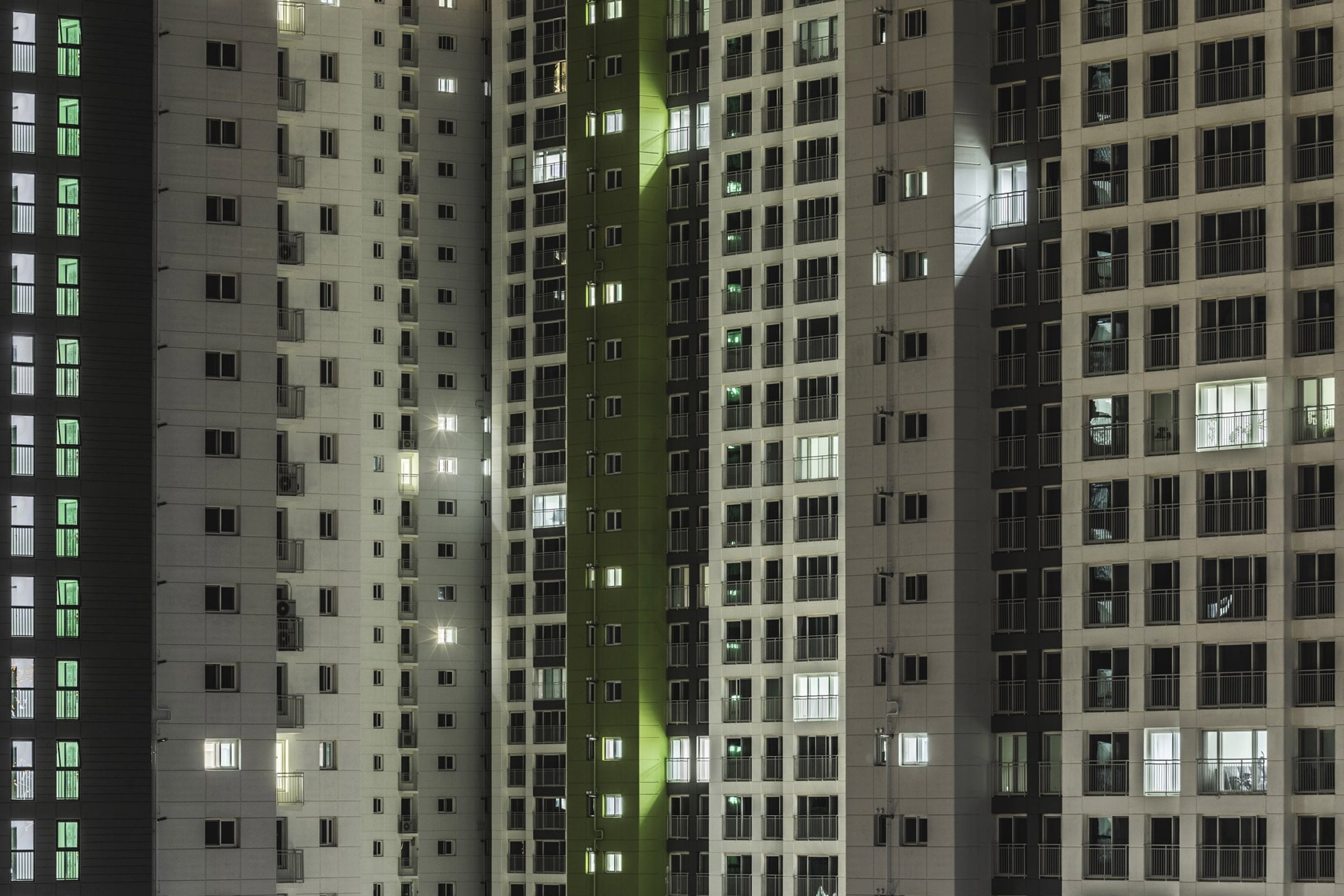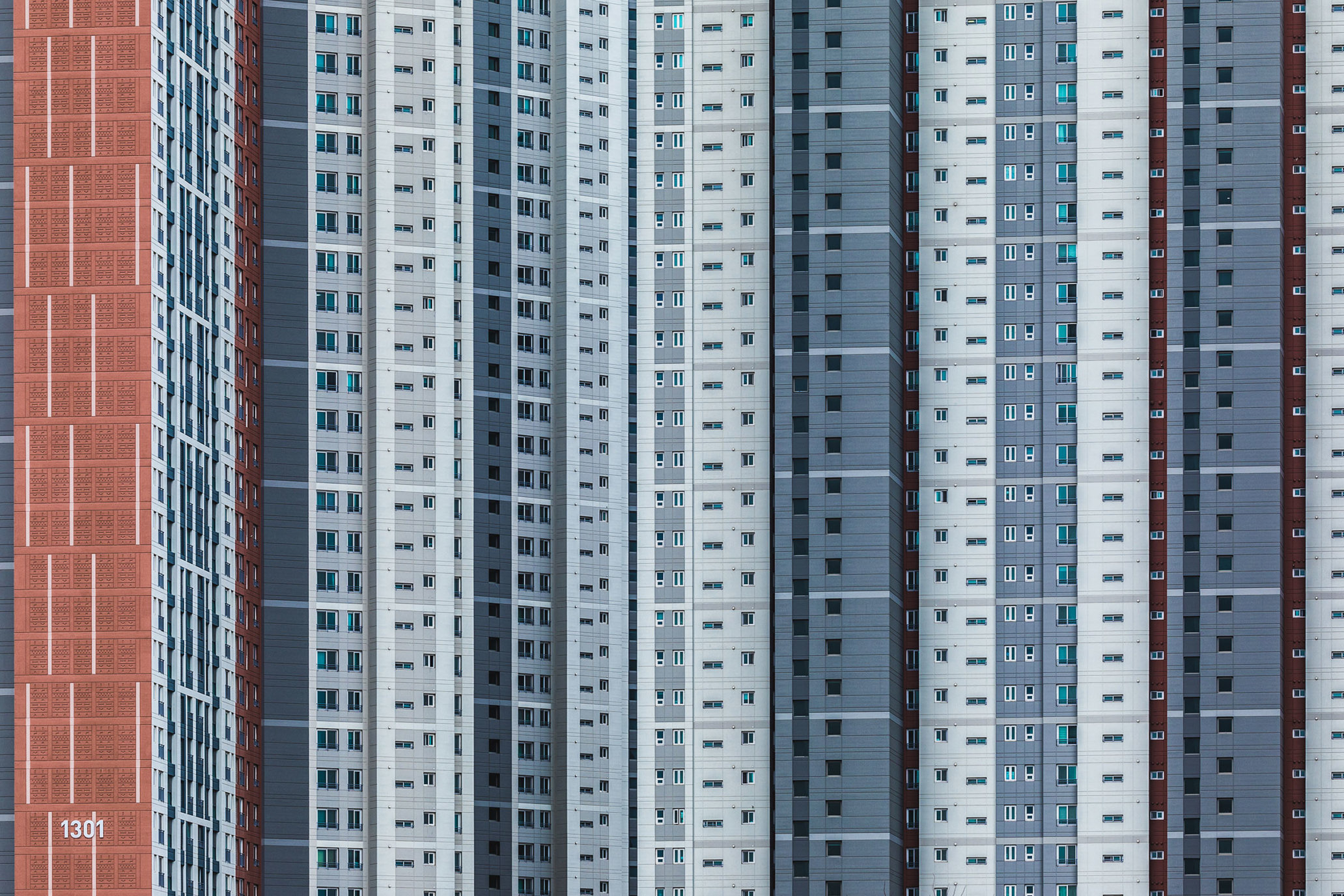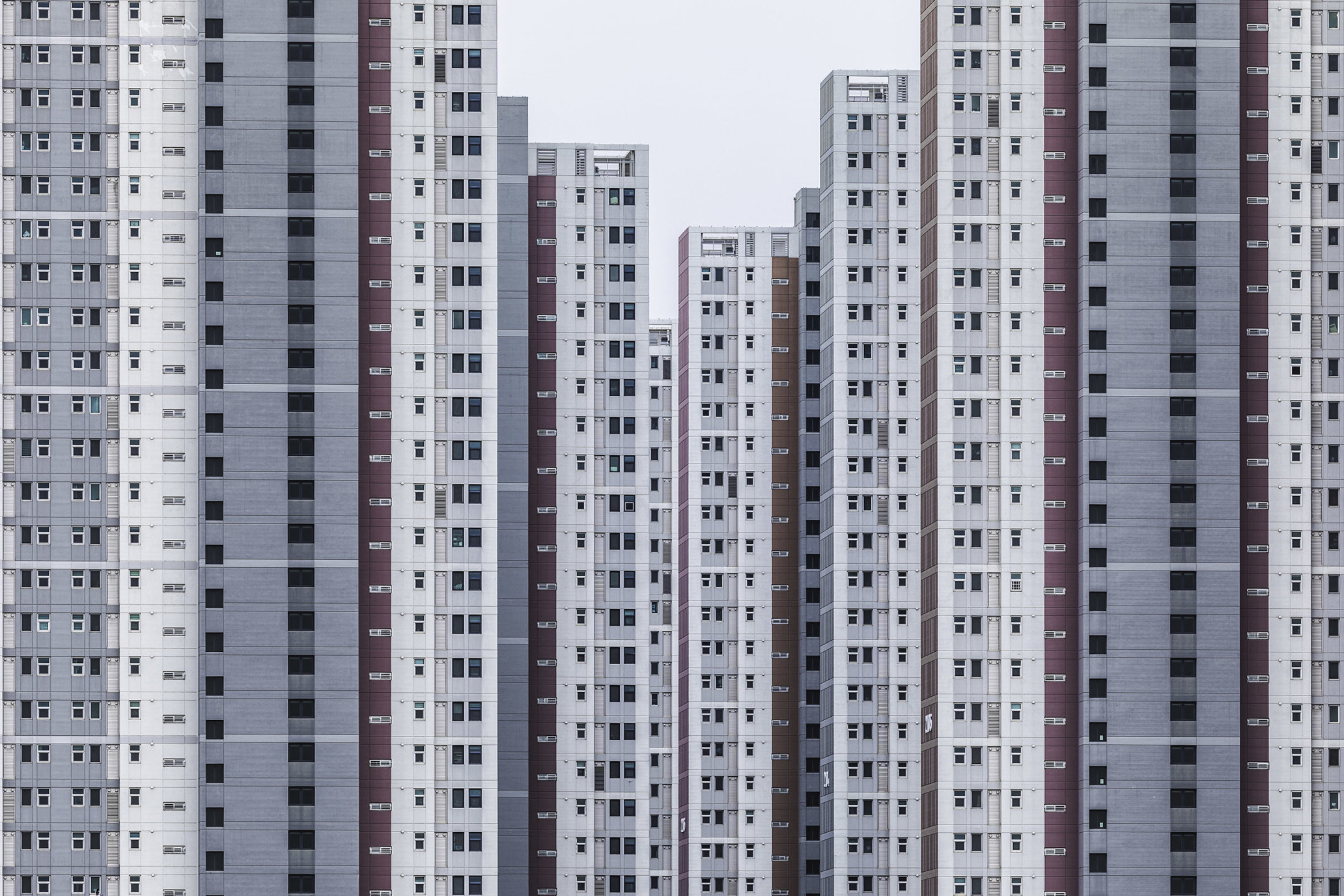It’s 9 p.m. on a Friday evening, and the streets of Songdo are eerily deserted.
Lights are coming on in the high-rise apartment buildings that tower over me, hinting at the existence of human life – although in this city, there’s no way of knowing for sure whether it’s people who control the lights. It could also be an algorithm.
As it’s getting chilly, I am looking for a place to sit down. It’s a task that proves harder than you would think in a modern city at the start of the weekend.
I walk past a brightly lit restaurant that captures my attention with its sleek and minimalist interior design, but I can’t tell if it’s open or closed. It looks strangely empty. The only two discernible figures are a Korean boy and girl in their early twenties, standing motionless behind a counter with their eyes firmly locked on their smartphones.
Tired, I make my way back to my hotel, taking a nightly stroll through a park that looks like it was to meant to emulate Central Park in New York City, surrounded by skyscrapers reminiscent of Manhattan. But again, I seem to be one of the few living souls around.
I doubt whether this is what Songdo’s urban planners had in mind in 2003 when they set out to build the world’s most advanced smart city.

By now, 300,000 people were supposed to populate this high-tech, sustainably designed metropolis near the South-Korean capital of Seoul. Yet so far, only 100,000 have actually moved in. With one critic calling it a “Chernobyl-like ghost town”, Songdo hasn’t exactly lived up to the stellar expectations.
Yet with a bold and forward-looking vision to construct the city of the future from scratch, surely Korea’s urban masterminds got some things right?
I spent a week in Songdo to find out for myself.
A brave new world
Whatever faults you may find in this pioneering urban project, a lack of ambition is not one of them. Carrying a hefty price tag of 35 billion dollars, Songdo was built from the ground up over the past fifteen years on a 600-hectare parcel of artificial land reclaimed from the Yellow Sea. A massive bridge spanning 21 kilometres takes you straight from Seoul’s Incheon Airport into the heart of this brave new world.

Ironically, one of the main goals of the project is to eventually eliminate the need for cars. All residential buildings in Songdo were built within 12 minute walking distance from bus and subway stops, with tens of kilometres of cycling paths. 40% of the city is green space. But that’s just where its eco-friendly intentions begin.
You won’t see garbage trucks driving around in Songdo. Household waste is collected via an underground network of pipes, driven by a pneumatic system that sucks people’s garbage straight from their homes into processing centres. 75% of the garbage is recycled into biomass, and heat from the recycling facility is redistributed throughout the city.
Don’t expect to be able to manually open or close your windows in this high-tech city. There’s a digital control system for everything, which you can operate with the click of a button – as I found out after two warm nights with closed windows and a dozen increasingly desperate attempts to open them the old-fashioned way.
After a week, I was a bit disappointed the windows hadn’t started to think for themselves yet, anticipating my desire for a cool bedroom.
To be fair though, in many ways this city already is the epitome of smartness today. And I’m not just referring to the music that starts playing automatically when you enter a public toilet, providing a soundtrack to your most private moments.

Sensors are all around you in Songdo. They collect data and feed it into intelligent systems that analyze the data in real time. Street lighting adjusts according to the numbers of passers-by. Car movements are tracked to regulate traffic flows. Residents can even compare their energy and water use with the average of their neighbors – creating a nifty incentive to finally shorten that morning shower. If not to save the planet, then at least to outrank the couple next door.
While you may not run into many fellow humans in the streets of Songdo at night, there’s no need to look behind your back. Someone else will do for it you. With hundreds of interactive security cameras that are constantly monitored via the city’s Integrated Operations Centre, I’ve never felt as safe walking around with a bag full of photography gear.

Alone in Sim City
Yet for all the comfort, safety, and ecological benefits that Songdo’s ubiquitous technology brings, I felt a gaping void at the center of this new urban utopia.
What Songdo boosts in technological wizardry, it lacks in soul, culture, and character. Everything feels strangely sterile and dehumanized.
Many of Songdo’s half-empty apartment buildings are barely distinguishable from each other, with blocks of concrete stacked on top of each other in Tetris-like fashion, reducing communities to numbers.
This is a world far away from the quaint cobblestone alleys of Paris or Florence, where the scent of history lifts up the spirit, where many a couple kissed for the first time throughout the ages, and where every corner fills you with anticipation of what you may find next.
It is telling that the one building in Songdo that looks authentically Korean, a seemingly century-old palace constructed from beautiful Honok-style wood, is in fact a luxury hotel. According to reviews, the breakfast is supposed to be really good.

Walking around in Songdo feels like entering the virtual realm of Sim City, where every street follows an orderly designed grid, where every tree was positioned in exactly the right place, and where humans are nothing but bits and bytes in a continuous stream of data.
But can all aspects of life be algorithmically optimized?
As one resident said in an interview, “I felt something cold when I arrived here”, lamenting the lack of warmth in neighbourhood interaction. She went on to add that there is an online forum where people share their complaints. “But only on the internet – not face to face.”


The future we get to build
I am not writing this to be skeptical or dismissive of smart city initiatives. On the contrary, one can only applaud attempts to pioneer sustainable modern living.
Yet maybe we can also learn from Songdo’s struggles.
As smart technology gets embedded into every corner of the street and into every building, what else is needed to bring a city to life and make it an enjoyable place for people to reside or visit?
And while there is undoubtedly benefit in connecting technology, do we spend enough time thinking how to preserve and foster human connections?
The city of the future may be smart, but that in itself does not make it a human city.


This article reflects my personal opinions. I was not compensated for my trip to Songdo in any way.
Further reading about Songdo and the smart cities of the future
Subscribe to receive new stories like this in your mailbox
Reflections on life, art, and creativity – inspired and supported by photography.
I care about your privacy. You can unsubscribe at any time.
6 Comments
Add comment Cancel reply
This site uses Akismet to reduce spam. Learn how your comment data is processed.
Wow, what an almost dystopian story! And these pictures pull you right into the Great Emptiness – where technology has taken over human connections. Powerful, really like your photography style and this post does make me want to visit that place…
It does feel a bit like the city was built around technology rather than around people. I’d like to go back one day and explore this city in more depth. To be honest, as a visitor, you only get a limited view of any place you visit.
Nice piece Tristan and great shots! It’s quite spooky right, we all seem to love our tech, but deep down…do we really? Anyway, no way escaping it. Keep up the interesting work.
Thanks for commenting! Indeed, our everyday relationship with technology is often ambiguous these days.
Hi Tristan,
Interesting point of view and the pictures sure make it a strong case
I live in Songdo and while is does carry the heavy tag city of the future it also has room for small creative offices for families and youth. The comparisons are also hard to parallel, Florence where I lived and Paris where I visited again and again are sedimented cities over centuries you can find the beautiful river sides restructured into the urban life and wrongly picture it has always been like that. It has not
Same with songdo and deeply connected with the vision of a life style. Either way is responding well to a pandemic of the “present” with its extremely convenient ways of living and services it made a good pint on living in the future
Songdo, like many cities it’s far from perfect but it’s not made for machines
Love your sharp eye for photography
Hi Pedro,
Thanks a lot for your comment and apologies for my late response – my website notifications were not working properly. It’s great to hear the perspective from someone who lives in Songdo. And to be fair, I hope I didn’t paint too negative a picture of your city – it has a lot of positive sides too. I hope to go back one day and immerse myself more deeply into Songdo’s daily life. You’re absolutely right: every city needs time to develop its ‘soul’, and that often starts with small creative initiatives.
Thanks!
Tristan